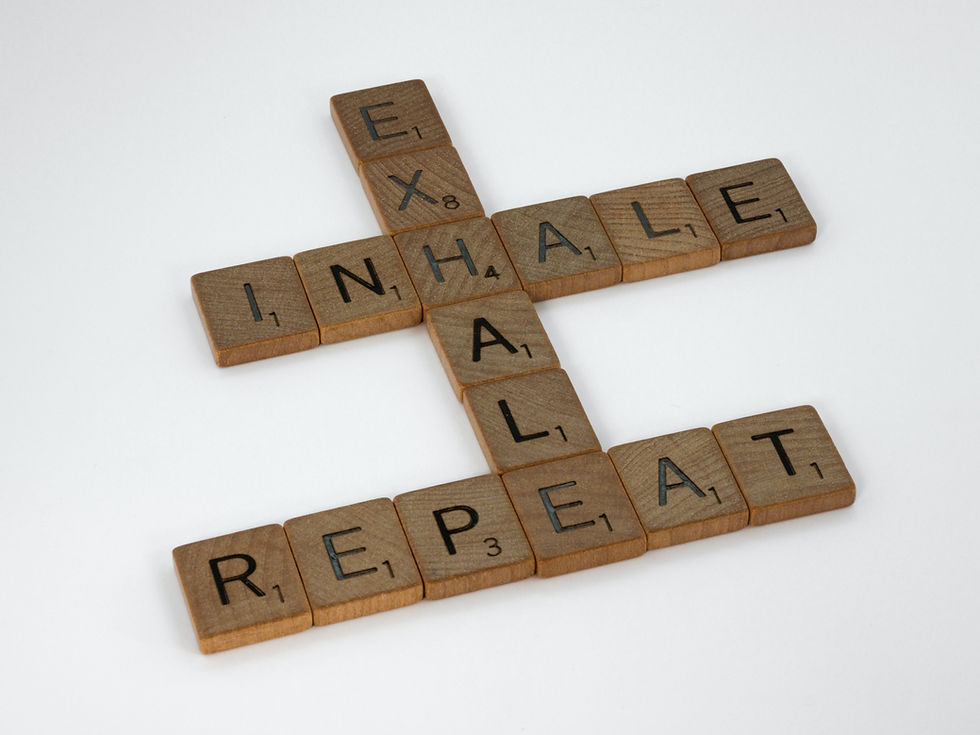Top 3 Foods to Avoid If You Suffer from Anxiety
- Marissa Sylvester
- Apr 20, 2022
- 4 min read
Anxiety is becoming a word we are hearing and seeing more and more, not only in the medical community but in the circles of our family and friends as well. I know very few individuals who have not been touched by feelings or symptoms of anxiety either themselves or within their friend/family groups these days.

As a society, we rush through our lives, trying to get a myriad of things accomplished in a day, working ourselves to the bone, taking a few breaks, staying up way too late, failing to sleep well, eat well, or taking the time to truly connect with those we love most. We have forgotten as a society how to care for ourselves! Anxiety can feel like the little flutter in your belly when you get nervous which could be a helpful reminder you are invested in the presentation you are about to give or it can feel so physically, emotionally, or behaviourally draining that it keeps you from engaging in work, or your most meaningful relationships. If you are struggling with anxiety or not sure if that is what you are experiencing, it is good to have a conversation with your health professionals. Be it your naturopath, MD, therapist, or Allied health professional. For some, you may choose a medication that aligns with your beliefs, for others they will look for alternative methods to assist with symptomatic relief and support. One way to support your body, mind, and spirit when you are experiencing periods of anxiety is to focus on your dietary lifestyle. This is something I am incredibly passionate about helping my clients with.
Today I thought I would share some foods to avoid when experiencing anxiety and/or high stress.
Foods to Avoid and Why:
1. Limit or avoid alcohol. The immediate effect of alcohol may be that it "takes the edge off". But as alcohol is processed by your body, it can make you more edgy and irritable, as well as disrupt your sleep and gut flora. Have you ever heard of hangxiety? The brain relies on a delicate balance of chemicals and processes. Alcohol is a depressant, which means it can disrupt and ultimately affect our thoughts, feelings, and actions. This is partly down to certain neurotransmitters, (chemicals that help to transmit signals from one nerve in the brain to another). The feeling of "taking the edge off" when we have a drink is due to the chemical changes alcohol has caused in the brain. A drink could release feelings of confidence and therefore you initially feel less anxious. However, the more we drink, the negative emotions ramp up, which negatively impacts mental health. So, while you may feel like your 9-ounce glass of red on Friday evening is the perfect way to cap off your week, if you are feeling stressed and anxious you may want to insert a cup of camomile tea instead.
2. Caffeine. It can make you feel jittery and nervous and can interfere with sleep. Caffeine's jittery effects on your body are like those of a traumatic or frightening event. That's because caffeine stimulates your “fight or flight” response, and research has shown that this can make anxiety worse and can even trigger an anxiety attack The caffeine-induced symptoms that can mirror anxiety include:
restlessness
gastrointestinal problems
So while you may love your coffee, I suggest keeping it to 1 cup daily along with plenty of water or switch to decaf, green tea, Dandi blend (coffee alternative) or rooibos tea.
3. Sugar, whether refined or other simple carbohydrates (like starch ie. flour, pasta, rice, potato). It can play on blood sugar, especially when they are eaten on their own or with other simple carbohydrates. The continual boosts and drops in blood sugar levels can trigger the release of adrenaline and cortisol into the bloodstream, causing anxiety and sometimes even panic attacks. While this delicious substance makes us feel good at the moment, it is better to lean on fruit (like apples which contain fibre) or berries that are sweet but are low in glycemic load. You don't need to take these foods out of your diet completely, just remember moderation and food pairing principles ie. incorporate fruits, veggies, healthy fats, and proteins to keep our hormones level, and our brains and microbiomes fed well.

So now that we know which foods to limit how about a few more TIPS to help you navigate the stressful times.
TIP: Eat a breakfast that includes some protein. Eating protein at breakfast with your carbohydrates can help you feel fuller longer and help keep your blood sugar steady so that you have more energy as you start your day.
TIP: Eat complex carbohydrates. Carbohydrates are thought to increase the amount of serotonin in your gut which influences the serotonin in the brain, which has an incredible calming effect. Eat more vegetables: Sweet potatoes, broccoli, green beans, carrots, asparagus, or Fruits: Apples, berries, oranges, kiwi.
TIP: Drink plenty of water1 Even mild dehydration can affect your mood.
TIP: Pay attention to food sensitivities. In some people, certain foods or food additives can cause unpleasant physical reactions. These physical reactions may lead to shifts in mood, including irritability and can absolutely influence and add to stress response and anxiety.
TIP: Try to eat healthy, balanced meals and ensure you don't overeat. Overeating can increase the stress response as well which will ramp up anxiety and make you feel more jittery vs. being cool as a cucumber.
Check out Women's Wellness Society, my online membership, for meal plans, support, educational modules, energy medicine, and more for more tips to help you feel less stress!
Marissa, R.H.N.





Comments